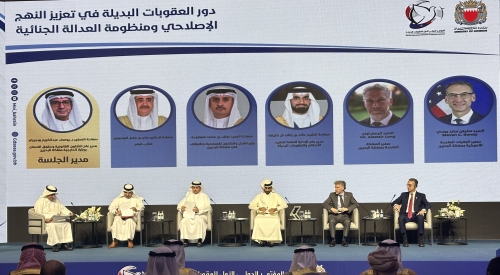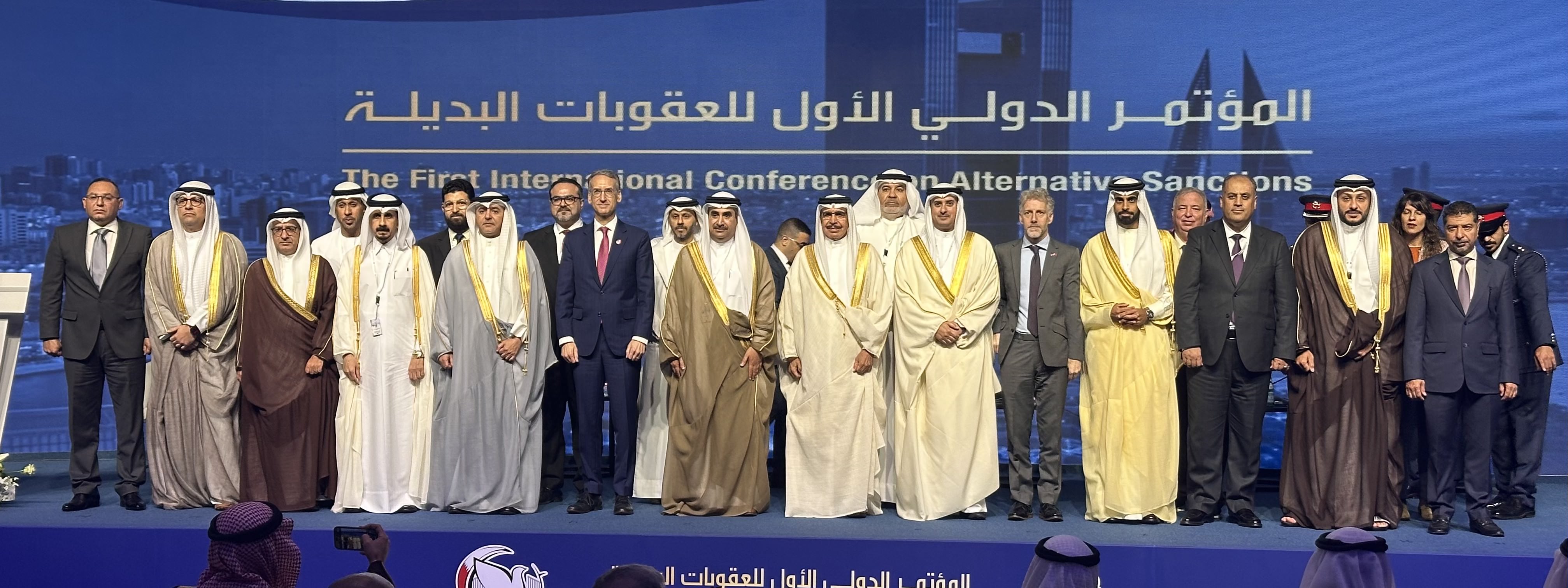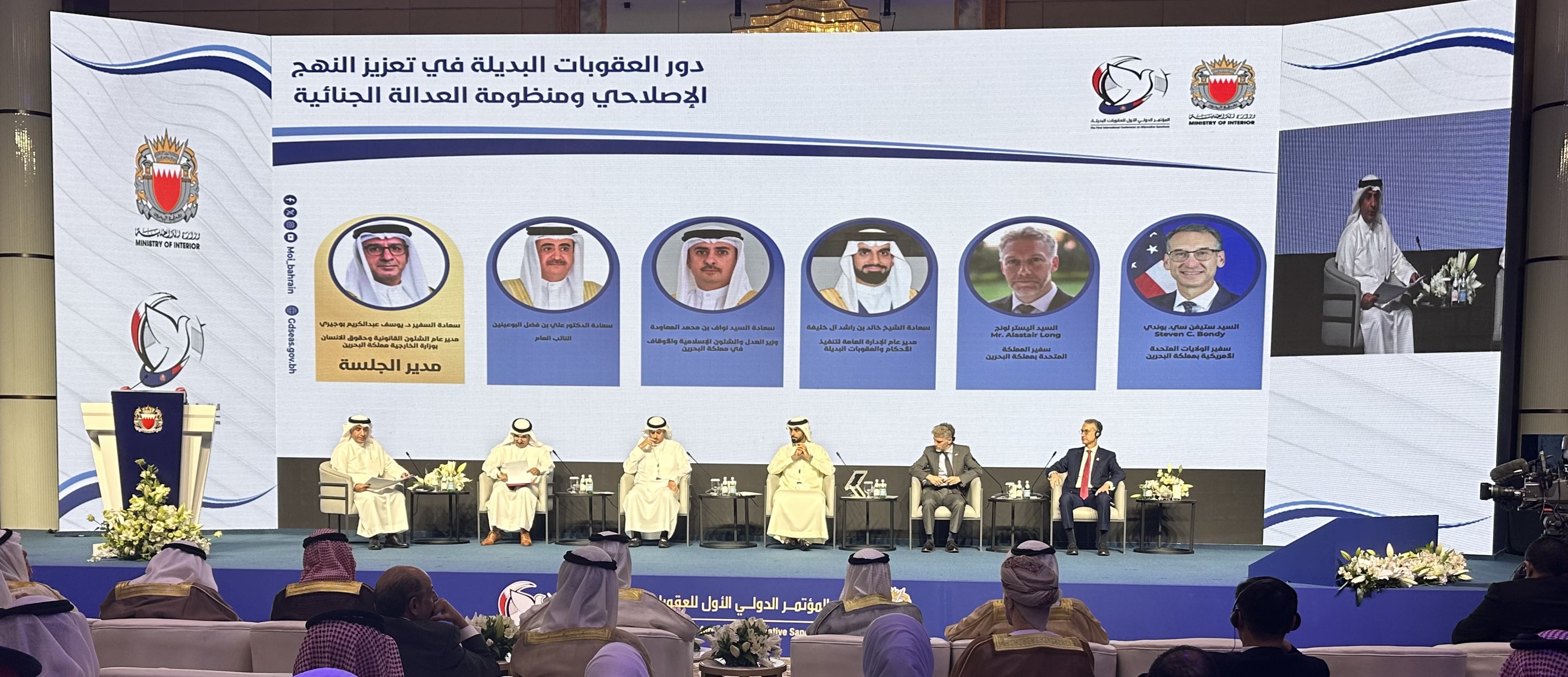Bahrain Showcases Progressive Justice Reform at International Conference on Alternative Sanctions
TDT | Manama
Email: ashen@newsofbahrain.com
The Kingdom of Bahrain recently hosted the first International Conference on Alternative Sanctions, drawing ministers, diplomats, and justice officials from around the world to discuss the nation’s pioneering approach to criminal justice reform. The event highlighted Bahrain’s commitment to rehabilitation, social reintegration, and innovative sentencing alternatives beyond traditional custodial penalties.
Dr. Ali bin Fadhel Al-Buainain, Attorney General of Bahrain’s Public Prosecution Office, underscored the collaborative nature of the system involving the Ministry of Interior (MOI) and the Supreme Council for Justice. “By integrating alternative sanctions, we facilitate family reunifications and empower beneficiaries, many of whom have successfully launched their own businesses after completing the programs.” he said.
Reflecting on Bahrain’s legislative journey, Nawaf bin Mohammed bin Hamad Al-Maawda, Minister of Justice, Islamic Affairs, and Endowments, traced the roots of the reform back eight years. “Since 2020, legislative advances have expanded the law’s scope, opening greater opportunities for beneficiaries,” he said. “By 2025, we aim to broaden the system further to not only provide work but also emphasize rehabilitation. Our sanctions now encompass seven to nine distinct types, carefully tailored to achieve the core goals of reintegration and social support.”
Shaikh Khalid bin Rashid bin Abdullah Al-Khalifa, General Director of Sentence Enforcement and Alternative Sanctions at the MOI, described the transformation as a societal journey. “Initially, there was resistance even within our own ranks,” he admitted. “Through awareness campaigns and rigorous training, society’s acceptance grew. Our digital classification programs and psychological support initiatives now underpin a success rate of 97.5%, with over 8,500 beneficiaries reintegrated and 273 currently in open prisons.”
Highlighting Bahrain’s leadership role in the region, Alastair Long, UK Ambassador to Bahrain, praised the Kingdom’s justice reform as “a model of compassion and human dignity.” He recalled a poignant moment at a recent graduation ceremony when a beneficiary, overwhelmed with emotion, expressed gratitude for a second chance, an experience met with genuine empathy by Bahraini officials.
Ambassador Long emphasized the strong UK-Bahrain collaboration in capacity building, including study visits to UK open prisons and academic partnerships, fostering shared expertise in rehabilitation and community-based sentencing.
Steven C. Bondy, U.S. Ambassador to Bahrain, echoed similar sentiments, applauding Bahrain’s progressive alternative sentencing law and open prison programs as transformative. He highlighted the robust partnership between the two countries across counterterrorism, cybersecurity, judicial affairs, and law enforcement. “The United States is committed to supporting Bahrain’s justice reforms, which have positioned the Kingdom as a regional and global leader,” Ambassador Bondy said. He also cited the recent historic visit of the U.S. Secretary for Homeland Security and the signing of the Congreventive Security Integration Prosperity Agreement (SIA) in 2023 as milestones deepening cooperation.
The conference underscored how Bahrain’s reform efforts blend tradition and innovation, reflecting local values while meeting international standards. The American Bar Association and the American Correctional Association have both recognized Bahrain’s strides in correctional practices, and ongoing international visitor leadership programs are further fostering exchange and learning.
Ambassador Bondy stressed the importance of multi-stakeholder collaboration—including ministries, the private sector, and civil society—in supporting social services and employment opportunities for beneficiaries. “These reforms are not just about reducing recidivism; they represent a broader societal commitment to dignity, opportunity, and second chances,” he noted.
Related Posts




